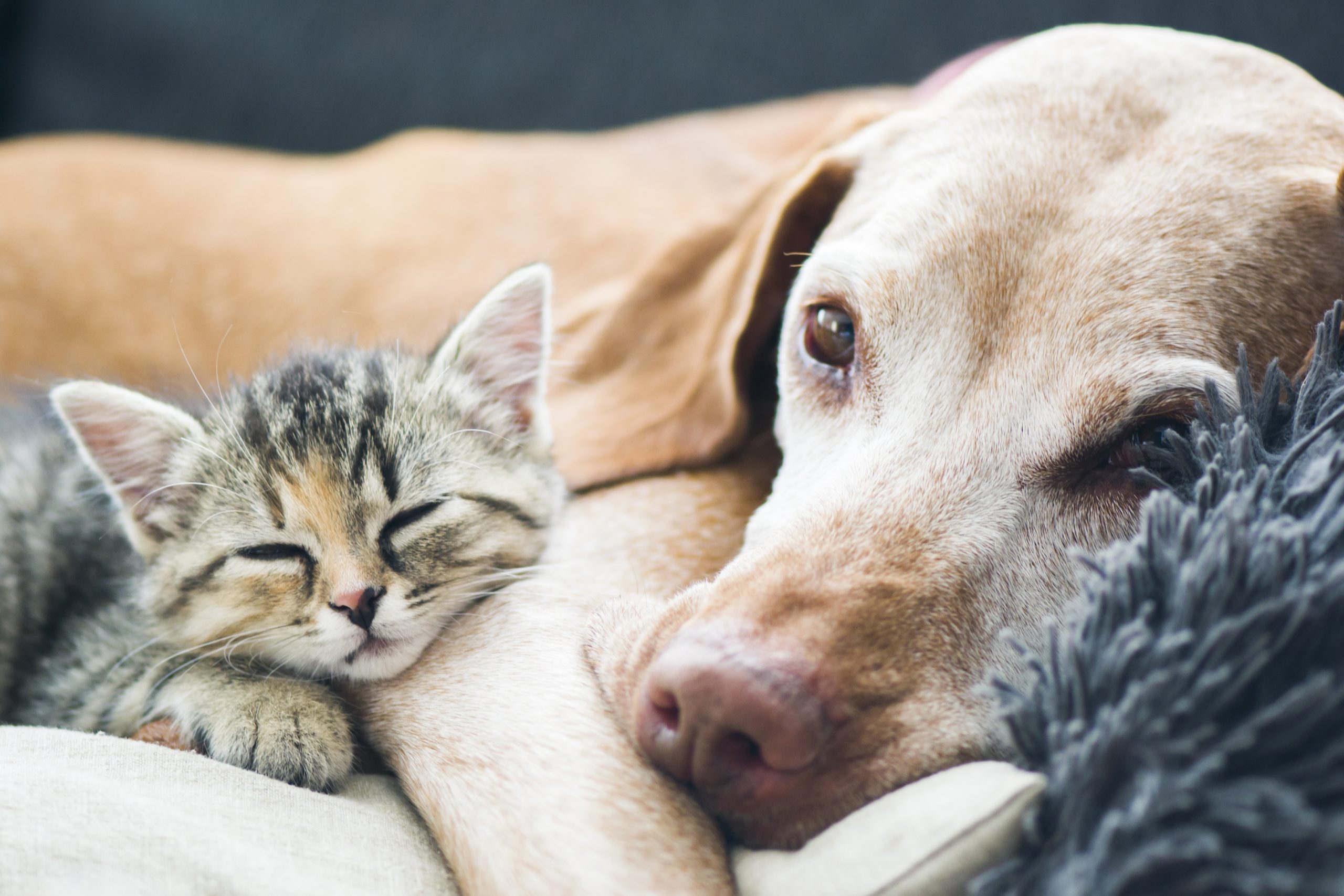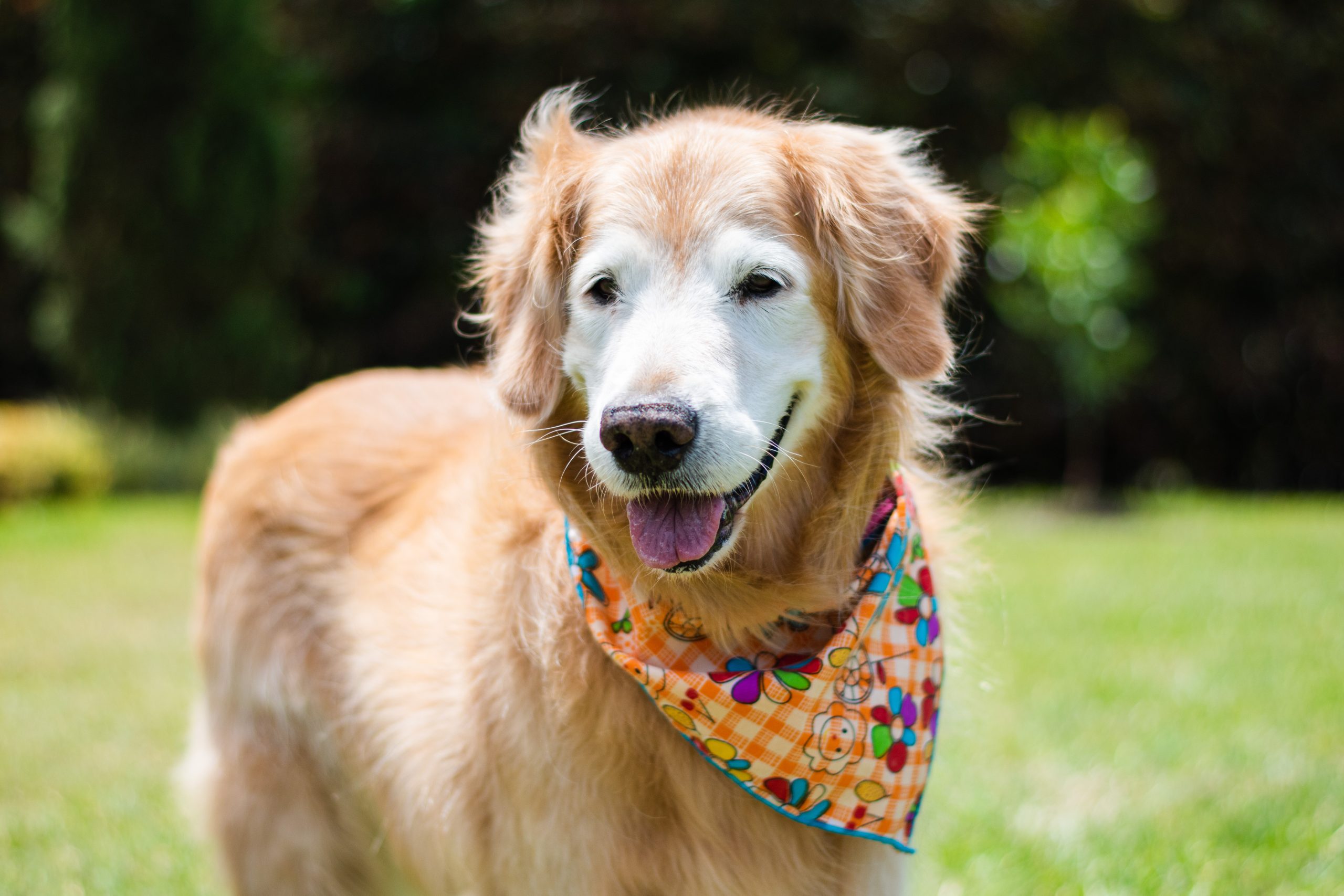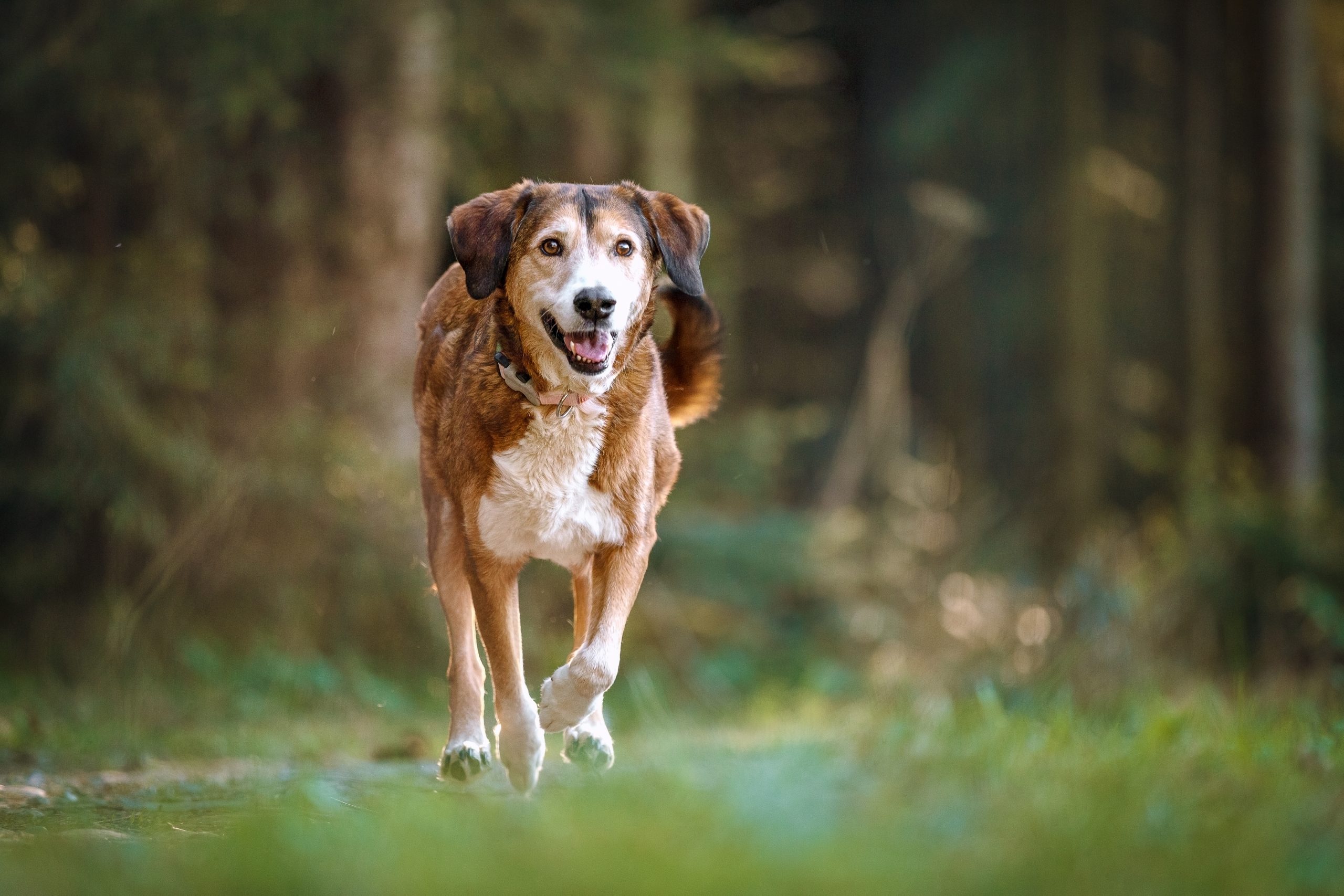-
Adopt
-
Veterinary Care
Services
Client Information
- What to Expect – Angell Boston
- Client Rights and Responsibilities
- Payments / Financial Assistance
- Pharmacy
- Client Policies
- Our Doctors
- Grief Support / Counseling
- Directions and Parking
- Helpful “How-to” Pet Care
Online Payments
Referrals
- Referral Forms/Contact
- Direct Connect
- Referring Veterinarian Portal
- Clinical Articles
- Partners in Care Newsletter
CE, Internships & Alumni Info
CE Seminar Schedule
Emergency: Boston
Emergency: Waltham
Poison Control Hotline
-
Programs & Resources
- Careers
-
Donate Now
 Potential owners are typically drawn to young animals like kittens and puppies when adopting a pet. But some older dogs and cats would love a home.
Potential owners are typically drawn to young animals like kittens and puppies when adopting a pet. But some older dogs and cats would love a home.
Sadly, senior animals are often the last to be adopted. However, adopting a senior dog or cat teaches you that age is just a number! Active senior dogs make just as great walking partners as their younger counterparts, and older cats are just as cuddly and playful as kittens.
Adopt a Senior Pet Month is November, so what better time to see some sugar-faced cuties looking for a loving home? We spoke with Jamie Garabedian, Assistant Director of Operations at Northeast Animal Shelter (NEAS), an affiliate of the MSPCA-Angell, for even more reasons to adopt a senior pet.
The benefits of adopting a senior pet
One of the biggest advantages of getting an older furry friend is that they are usually already trained. Nearly all dogs are housebroken, and most can walk on a leash. “Usually, if you’re adopting an older dog or cat, the likelihood is that they’re more acclimated to already living in a home setting and can settle in a little bit quicker than a puppy or a kitten could,” explained Jamie. People new to pet ownership will benefit from adopting a senior pet since little to no training is required.
walk on a leash. “Usually, if you’re adopting an older dog or cat, the likelihood is that they’re more acclimated to already living in a home setting and can settle in a little bit quicker than a puppy or a kitten could,” explained Jamie. People new to pet ownership will benefit from adopting a senior pet since little to no training is required.
Providing a home to an older animal is also more rewarding. For animals, moving from a family home to a shelter is stressful. The feeling of getting a dog or cat out of a shelter and back into a stable home life is wonderful.  Nothing compares to cuddling with a warm human who loves and cares for them! “Senior pets get overlooked so often,” said Jamie. “It’s a lot more fulfilling to provide an older animal that might not get adopted as quickly as relief from being in a shelter and get them back into a home.” They truly appreciate you and know you’ve given them a second chance at life.
Nothing compares to cuddling with a warm human who loves and cares for them! “Senior pets get overlooked so often,” said Jamie. “It’s a lot more fulfilling to provide an older animal that might not get adopted as quickly as relief from being in a shelter and get them back into a home.” They truly appreciate you and know you’ve given them a second chance at life.
Misconceptions about adopting older animals
There are some popular myths surrounding senior pets. For one, people think they’re inheriting another family’s problem pet. This is so far from the case! There are many reasons why owners part with their pets, but with seniors, most of the time, their owners have fallen ill, lost their job, or passed away, which are no fault of their pets.
Other misconceptions about senior pets include:
- high vet bills (this is the same with pets at any age)
- senior animals aren’t trainable (as mentioned above, most are already fully trained)
- older pets aren’t as playful as the young ones (some active seniors can run circles around the friskiest of puppies)
 One of the biggest myths is thinking you’ll have to say goodbye so soon. “I’ve heard many people say, ‘Oh, I don’t think I could do it. It’s so heartbreaking because senior pets aren’t around as long as young animals,” said Jamie. “People don’t like the idea of preparing for that heartbreak in such a short amount of time.” However, life is unpredictable, and there are no guarantees whether a pet will pass because of an accident or natural causes. “It’s best to think of it this way: You’re helping to save a life – and because of you, that dog or cat is going to have a loving family and, ultimately, a happy retirement,” said Jamie.
One of the biggest myths is thinking you’ll have to say goodbye so soon. “I’ve heard many people say, ‘Oh, I don’t think I could do it. It’s so heartbreaking because senior pets aren’t around as long as young animals,” said Jamie. “People don’t like the idea of preparing for that heartbreak in such a short amount of time.” However, life is unpredictable, and there are no guarantees whether a pet will pass because of an accident or natural causes. “It’s best to think of it this way: You’re helping to save a life – and because of you, that dog or cat is going to have a loving family and, ultimately, a happy retirement,” said Jamie.
Challenges of adopting a senior pet
As with adopting younger animals, senior pets come with some challenges. The move from the only home they knew to a shelter and then to another family could cause separation anxiety to some. Every pet, young or old, can suffer from age-related health issues. “I honestly think the biggest challenge is knowing you’re not going to have as much time with them,” said Jamie. “There’s a mental preparation that you have to do when you’re adopting an older or senior pet: you need to realize – and accept – that you’re not going to get as much time with them as you would if you adopted a younger animal.”
Preparing to adopt your senior pet
 Adopting a pet, regardless of age, involves some considerations. Think about your lifestyle – are you active and go out every night or weekend? Is a hike in the woods more your thing, or do you prefer watching Netflix on the couch? “You want to look at the personality of the pet you’re thinking about adopting and making sure that the fit is right for you and your home environment,” said Jamie.” Consult the shelter staff about finding the right pet (the NEAS and MSPCA-Angell shelters are experts at finding pets that match your lifestyle).
Adopting a pet, regardless of age, involves some considerations. Think about your lifestyle – are you active and go out every night or weekend? Is a hike in the woods more your thing, or do you prefer watching Netflix on the couch? “You want to look at the personality of the pet you’re thinking about adopting and making sure that the fit is right for you and your home environment,” said Jamie.” Consult the shelter staff about finding the right pet (the NEAS and MSPCA-Angell shelters are experts at finding pets that match your lifestyle).
Can you introduce a senior dog to your family if you already have a dog? “We always recommend bringing your dog to the shelter and at least doing an introduction here to see how that initial meet goes,” explained Jamie. Even if that goes well and the adoption goes smoothly, you should still take things slowly once you get home. While you get your dogs used to each other, give them separate spaces and feed them separately. “It would be the same with a person,” said Jamie. “If someone moved into your house tomorrow and you’ve never met them, are you immediately trusting and bonding with them, or do you need some time?”
Introducing a new pet to your cat is a bit more complicated. You should not bring your cat into the shelter for a meet-and-greet. Once you have the new senior pet at home, continue the slow introductions. It is crucial to separate your pets for a smooth transition; this allows your new senior pet to adjust to a less stressful environment, and your current pet can adjust to the fact that another animal now lives with them. “Make sure everybody’s safe before you acclimate them or let them be in the same space for too long together, and just take your time with them because, again, they’re beings, and they need time to get to know each other just like you would,” said Jamie.
Ways to keep senior pets healthy
Your veterinarian should be your first point of contact. “Discuss maintenance plans. If it’s a dog or cat that might have arthritis, maybe there are supplements you can take ahead of time,” said Jamie. You can proactively manage pet health concerns by scheduling regular screenings with your veterinarian. The appropriate tests will be recommended by your veterinarian, usually bloodwork, urinalysis, physical examinations, and dental examinations.
supplements you can take ahead of time,” said Jamie. You can proactively manage pet health concerns by scheduling regular screenings with your veterinarian. The appropriate tests will be recommended by your veterinarian, usually bloodwork, urinalysis, physical examinations, and dental examinations.
Regardless of age, exercise is essential. “An older dog might not need as many walks, but they still need a walk to let them work off excess energy and experience the outdoors, including sniffing the world around them,” said Jamie. Sniffing on walks is essential for all dogs, but more so for seniors. A large portion of a dog’s brain is dedicated to its sense of smell. Although dogs’ eyesight and hearing may decline with age, their olfactory systems – their powerful noses – allow them to process an abundance of information. Sniffing while on walks is a great way to exercise your senior dog’s brain.
 It may not be possible to exercise your senior cat outside (though some cats enjoy walks), but playing with her can help. Introduce her to new toys she’s not used to seeing every day and provide her with more climbing opportunities (be aware of your senior cat’s limitations). If she’s treat-motivated, take the time to hide her favorite nibbles around the house so she can hunt for them. Before introducing any physical or mental activities to your senior cat, speak with your vet about ways to keep her active that are safe and appropriate for her age.
It may not be possible to exercise your senior cat outside (though some cats enjoy walks), but playing with her can help. Introduce her to new toys she’s not used to seeing every day and provide her with more climbing opportunities (be aware of your senior cat’s limitations). If she’s treat-motivated, take the time to hide her favorite nibbles around the house so she can hunt for them. Before introducing any physical or mental activities to your senior cat, speak with your vet about ways to keep her active that are safe and appropriate for her age.
Interested in adopting a senior pet?
Visit the MSPCA-Angell or Northeast Animal Shelter to find your new senior pal!



